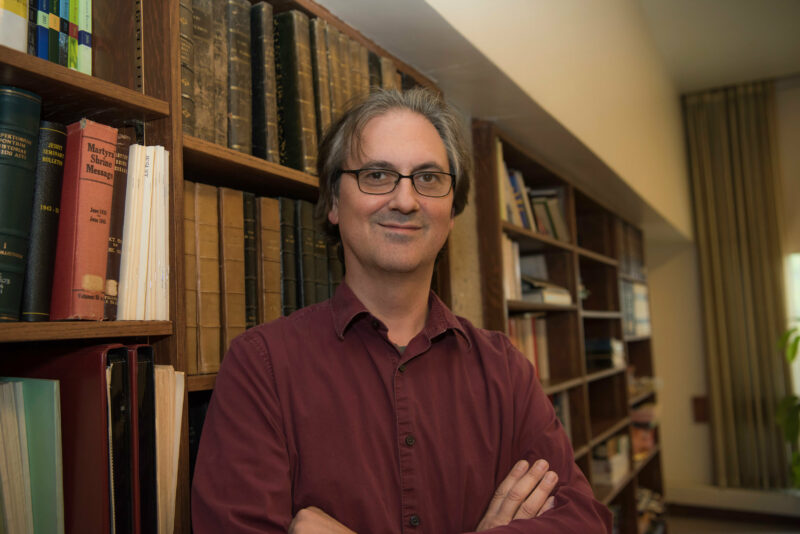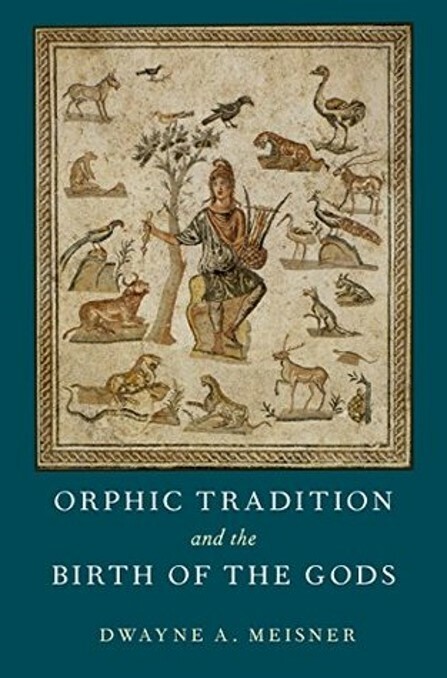Q&A with Dwayne Meisner, URFA member
What began as a term with URFA’s Sessional Advocacy Committee in 2018 piqued additional interest in URFA committee contributions for Dr. Dwayne Meisner, sessional member of classics at Campion College. In this Q&A, he describes his interest in serving with URFA, explains how COVID-19 improved (yes, improved!) his teaching, and shared how he gamified a Latin course he teaches.
What interested you in joining the Sessional Advocacy Committee (SAC)?
What interested me in joining was actually the precarity of my own situation as a sessional at Campion College. I was teaching one course and over a technicality I came really close to even losing that and missing out on an entire semester of teaching. I went to the dean of Campion to talk it over and they suggested that if I want to improve my job situation, I should get involved in union activities and collective bargaining.
About a week after that conversation, I saw an URFA brochure about the SAC and I joined the SAC that May. Since then, it’s evolved from the personal desire to improve my own job situation to a greater awareness of the issues and challenges facing sessionals everywhere and some of the strategies for improving those. I’ve become dedicated to it as a general cause, even though in the end I’ve been able to see certain improvements to my job situation. I am a lot happier with my job situation now, but I still think it’s important to be involved in solidarity with other sessionals.

Photo provided by Dwayne Meisner
How did joining SAC spark your interest in additional involvement with URFA?
Shortly after [joining SAC], I found out about the Council of Representatives (COR) and that there was an opportunity for sessionals to be represented there. It became clear to me that sessionals should be involved in as many committees as possible, so our voices are heard at as many tables as possible. I joined COR, largely just wanting to learn more about how the union works, and that’s been a valuable experience.
The real goal I was after was to be on the collective bargaining committee for Campion. Along with a full-time professor, there was me and another sessional on the committee, and we worked at fixing some of the weaknesses of the sessional employment situation at Campion. It was a really positive round of bargaining, in which the employer was agreeable to many of these changes, and that was wonderful.
After that, I ended up being involved in the letter of understanding committee when the COVID-19 pandemic first hit between the union and the university over what the parameters and protections during the pandemic would be. The whole point of what really interests me in becoming involved in all of these URFA committees is the need to enhance the extent to which sessionals are represented when decisions are made.
Are there pieces that you’ve particularly enjoyed about your increasing involvement with URFA?
Well, getting to know really good people that I work with in committees and also URFA office staff. Also, having a better sense of what’s going on in general is beneficial. But being able to see certain things changed for the better — that is always the best thing about it. The fact that the SAC chair is a member of executive committee, and the creation of the SAC chair email address and the sessional Facebook group, are recent changes. Seeing little things like that, even though they’re just little things, they always make it seem worth it.
Shifting to your work as a Sessional Member of Classics at Campion College, what interested you in studying and teaching classics?
My interest in mythology and pagan ritual in general is what interested me in classics. When I was in university, I took some of the introductory courses to the classics program at Campion as an undergrad and immediately found a very deep interest in the history and culture of Greek and Roman people. I chose to do a classics minor that had a language requirement, so when I started learning Latin in the same Latin course that I’m now teaching, I found it surprising how easy it was for me to learn a new language. My first degree was in history, but I focused on ancient history and then went on to an MA and a PhD in classics from there.
When we refer to classics, what does that mean?
Classics refers to the classical period — after the Bronze Age period, during the Iron Age there was the classical period in Greece and Rome, followed by the Middle Ages. In a more specific sense, in Greek history, there’s the archaic period from about 900 to about 500 BCE and then the classical period from 508 BCE to the death of Alexander in 323 BCE. So, it has a more specific meaning, but also a more general one, meaning the classical civilizations of Greece and Rome because Greece and Rome kind of set the tone for Western history and culture and politics since then.

Cover of Dwayne Meisner’s book, “Orphic Tradition and the Birth of the Gods”. Photo provided by Dwayne Meisner.
Is there something that you’ve noticed surprises students or others that you speak with about the areas that you teach in?
Many things because Greek and Roman society were so different and so far away in time and in culture from ours — like gender roles, the rights of, or better yet, lack of rights of women in Greece and Rome is always surprising to students. Just the extent to which women were misunderstood too in the ancient world and the importance of ritual and myth and the gods in society, is something that’s always surprising to students.
My favorite way to surprise students of classics is for them to come to the Latin course and after a few weeks learn that they actually can do this. At first, a student comes in, is uncertain, and then does really well at a language course. They never thought that they could read another language and they walk away feeling better about themselves, so that’s the best surprise. Also, sometimes it just surprises students how much fun it is to read an ancient epic — it’s great literature for a reason.
Any unique or interesting ways that you have adapted some of your teaching as a result of COVID?
COVID has impacted my teaching in almost all good ways. Obviously, I miss the personal connection of speaking face-to-face with my students. But for my literature courses, I’ve put everything I have to say onto YouTube videos and if they don’t want to watch the YouTube videos, they can read the notes which are video transcripts. I’ve become so much better at leading class discussions when we meet once a week in Zoom than I ever was when we were meeting three days a week in class. I’ve become a better teacher.
For the Latin class, it is extremely difficult to teach a language course remotely, which heavily involves memorization. How do you test for that? But I took that as an opportunity to be creative. I found ways of testing where, even if it was open book, it would still be challenging if you didn’t really know what was going on.
I’ve always based my marking system in my Latin course like a role-playing game. As in Dungeons and Dragons or Final Fantasy, for example, where for every word that they translate, there’s a certain number of Latin points, like experience points. After you earn a number of points, you level up and each level consists of one per cent of your final grade, so the more you level up, the higher grades you get. Students love this because a lot of them are gamers, and also because it’s positive — you’re rewarding them for right answers instead of taking marks off for wrong answers. Having to do it remotely means I’ve been able to literally turn it into a video game. The whole course becomes a matter of Latin points for the main quests, and then the midterms become boss fights. Students love it. They love the structure of it.
The content of it has been difficult — coming up with questions that are still challenging, even if it’s open book, whereas in class you have no resources in front of you. So, I’ve had to make questions significantly harder and it’s always a bit tough trying to find the right balance between still challenging the top students without failing students at the bottom of the class, right? That’s always the struggle with questions where it’s all right and wrong answers.
Is there anything else you’d like readers to know about?
If you’re a sessional, check out the list of FAQs for sessionals on the URFA website and contact the Sessional Advocacy Committee to learn more about your rights as an employee of the university and federated colleges. You can also contribute to our upcoming newsletter and join our Facebook group.
This interview has been condensed and edited.
Enjoy reading Q&As with URFA members?
Read our previous one with Michael Shires, chair of URFA’s Member Mobilization Committee.
